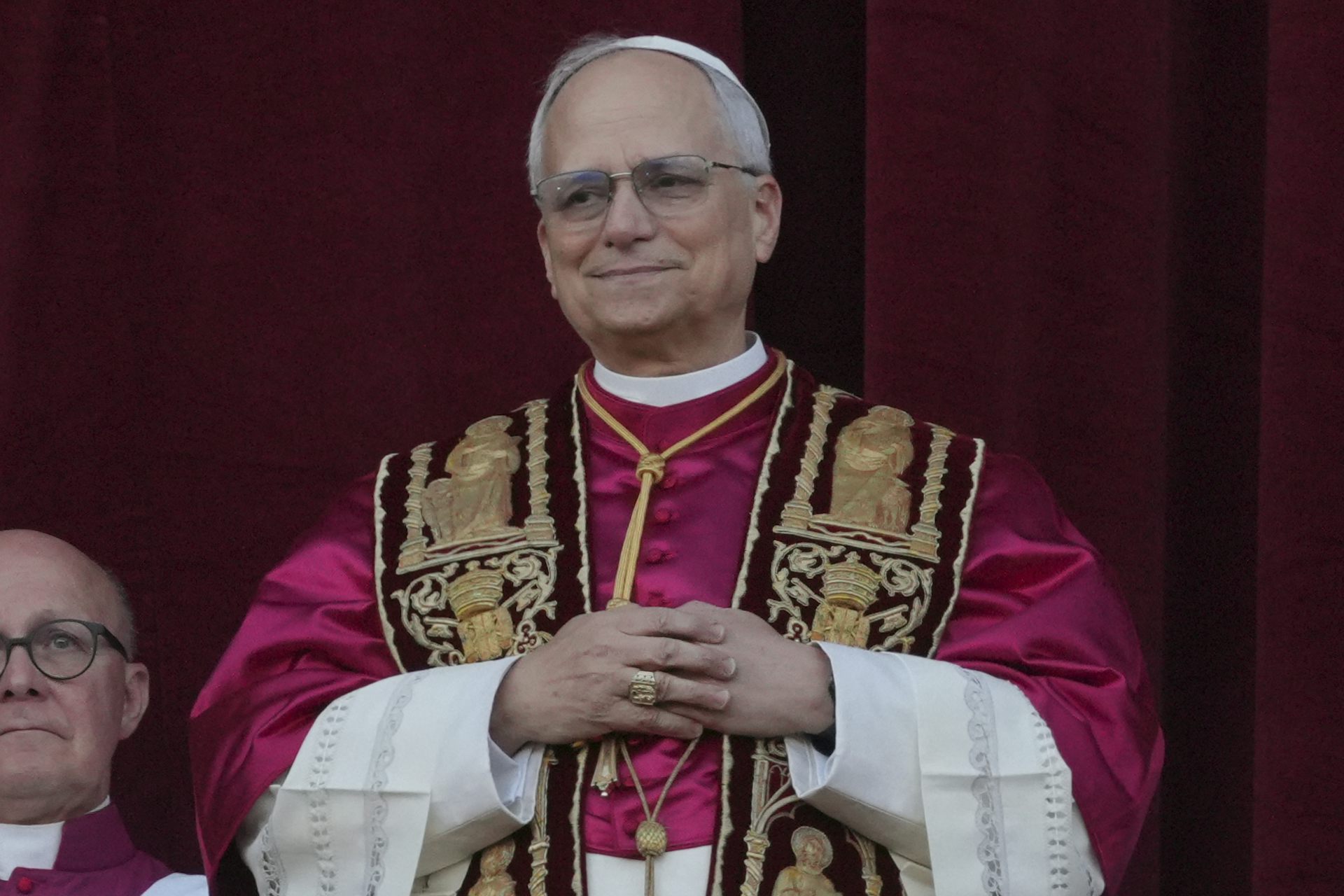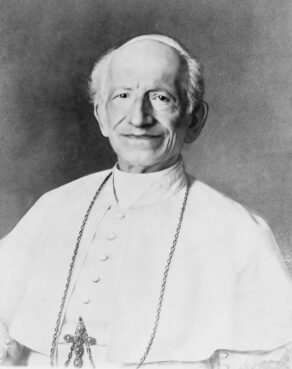
(RNS) — Cardinal Robert Prevost’s decision to call himself Pope Leo XIV has been taken as a signal that he will prioritize the social teaching of the previous pope to take the name, who reigned from 1878 to 1903. In his 1891 encyclical “Rerum Novarum” (“Of new things”), Leo XIII pioneered the Catholic Church’s support for workers’ rights and the state’s responsibility to care for the poor.
So in choosing the name, the new Leo puts himself on the progressive side of the papal ledger, along with Popes John XXIII, Paul VI and, of course, Francis. But the first American pope also may be channeling another aspect of the 19th century’s Leo: That Leo paid more attention to the United States than any pope before or since — and not in a particularly approving way.
In the 1895 encyclical “Longinqua Oceani” (“The ocean’s long expanse”), Leo praised the growth of the American church, acknowledging it had taken place under a system that guaranteed and protected religious liberty. “Yet, though this is true,” he warned, “it would be very erroneous to draw the conclusion that in America is to be sought the type of the most desirable status of the Church, or that it would be universally lawful or expedient for State and Church to be, as in America, dissevered and divorced.”
In a sharp letter to Cardinal James Gibbons of Baltimore four years later, Leo criticized a number of views allegedly held by American Catholics, declaring that no one should “suppress for any reason any doctrine that has been handed down” and denouncing “the assumed right to hold whatever opinions one pleases upon any subject and to set them forth in print to the world.” These views, he wrote, “are called by some ‘Americanism.'”

Portrait of Pope Leo XIII, circa 1898. (Photo by Francesco De Federicis/LOC/Creative Commons)
American bishops foreswore such views — leading historians of Catholicism to dismiss “Americanism” as a “phantom heresy” — but Leo’s criticism made a real impact on the American church. There are indications that this is another leonine legacy that Leo XIV was elected to shoulder.
You might say he’s been there and done that.
On August 5, 2023, Pope Francis criticized “a very strong, organized, reactionary attitude” within the U.S. Catholic church, saying of some conservative groups that “instead of living on doctrine, on the true doctrine that always develops and bears fruit, they live on ideologies.”
Two months later, the newly elevated Cardinal Prevost, the future Leo XIV, explained why he thought Francis had selected him: “I think I do have some insights into the church in the United States. So the need to be able to advise, work with Pope Francis and to look at the challenges that the church in the United States is facing, I hope to be able to respond to them with a healthy dialogue.”
Such healthy dialogue has apparently included tweets assailing President Trump’s anti-immigrant policies and criticizing Vice President JD Vance’s deportation-justifying theology of Christian love. “JD Vance is wrong: Jesus doesn’t ask us to rank our love for others,” Prevost wrote Feb. 3.
Let’s bear in mind that U.S. Catholic critics of Francis, including bishops, have ignored magisterial teaching on issues ranging from climate change to the death penalty, from synodality to the Latin Mass. On traditionalist blogs and EWTN they have been prepared to entertain hostile opinions of church leadership and send them out into the world.
Call it the latter-day Americanism of the Catholic right. How far will the latter-day Leo go to combat it?
